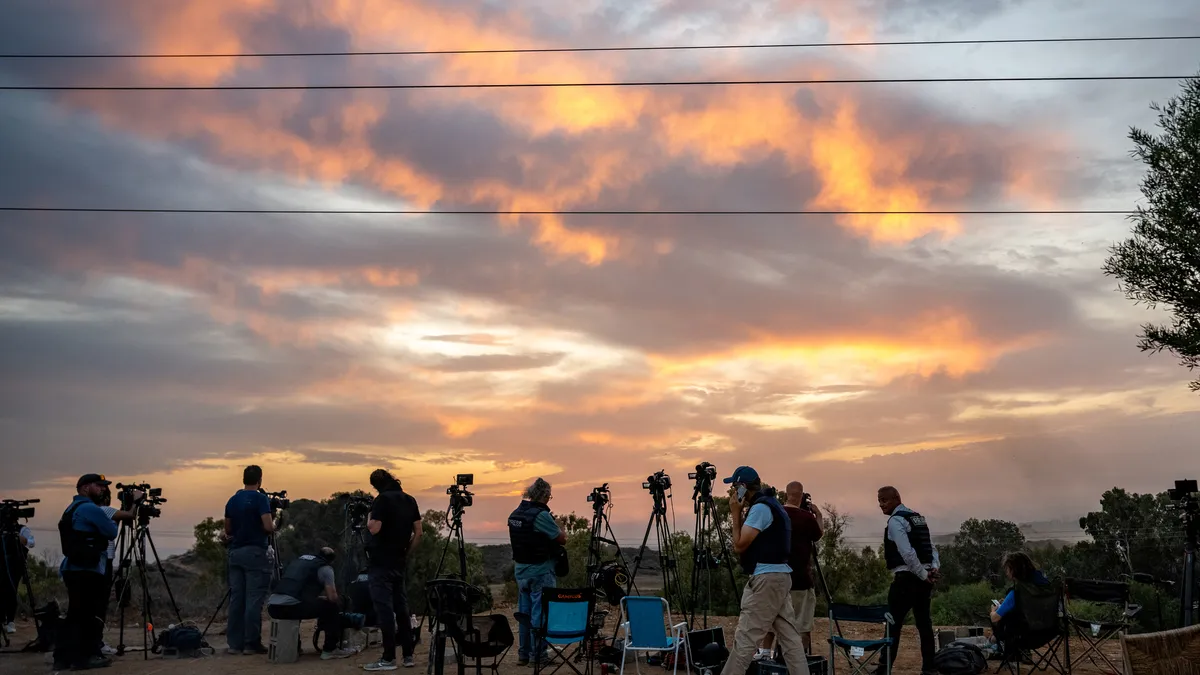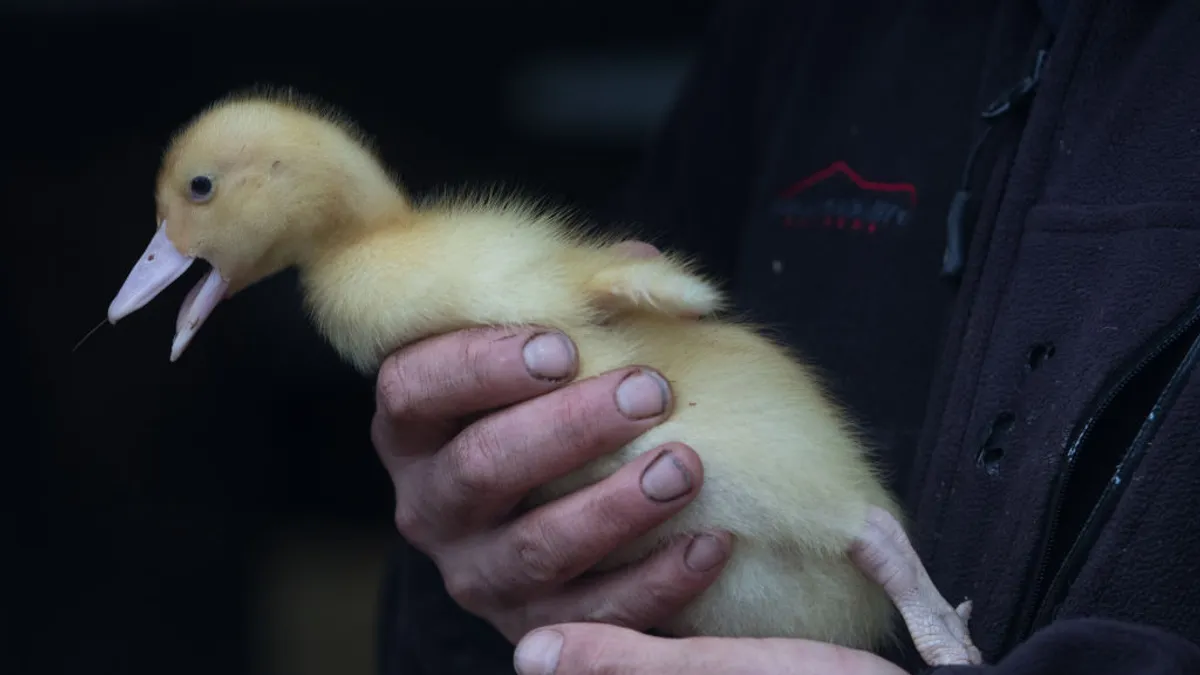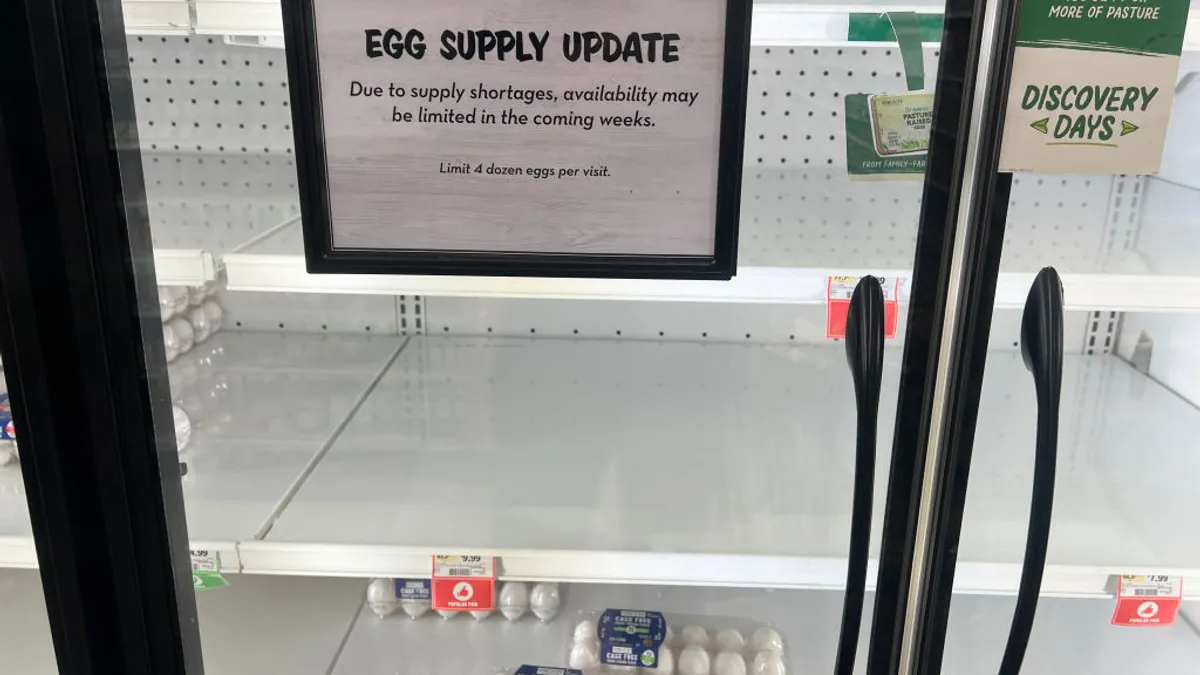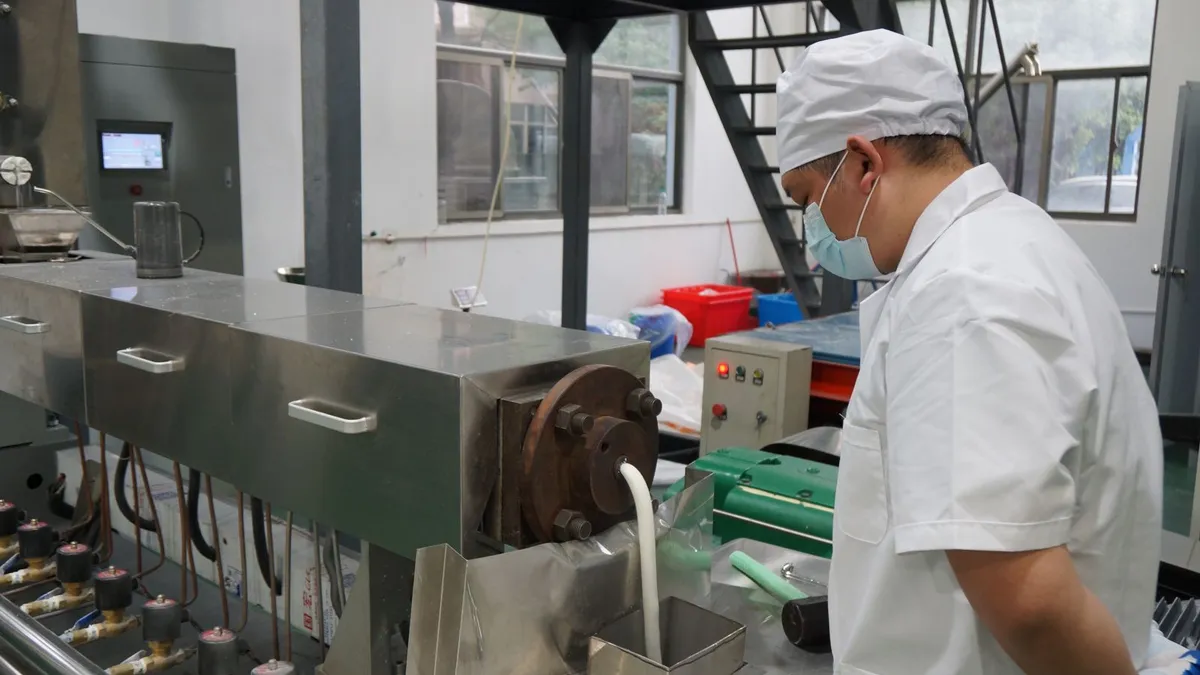Israel’s latest war with Hamas is threatening to disrupt the country’s thriving startup culture in food technology.
The country is home to an innovative and vast tech sector, including a fair share of food tech startups — Aleph Farms, Imagindairy and Future Meat Technologies to name a few. And while Israel has seen crises, each time the tech industry has shown resilience.
But the current situation is testing the “startup nation.”
An alternative protein epicenter
Israel has become a leader in alternative protein production. The region has made more than $1 billion in venture capital investments in the space in the last two years, according to the Israeli Good Food Institute State of Alternative Protein report. In 2022 alone, Israeli alternative protein companies raised $454 million in funding.
Tech is the biggest sector of the Israeli economy. But with schools closed and businesses shuttered, Tel Aviv — the center of the country’s tech business — looks a lot different from a few months ago.
Between an increasingly difficult funding environment and key industry executives taken away from their everyday duties to join the IDF and support military personnel, it’s unclear if, and when, the category will recover from such upheaval.
Palestine’s tech sector, which has been growing rapidly as well, is facing destruction as workers in the Gaza strip and West Bank are struggling to operate. For years, international companies have sought after tech workers in the region, leading to the birth of many startups as well. Nvidia, for example, has been an integral part of the AI boom and relied on the brainpower of engineers native to the Gaza strip, TechCrunch reported.
“This has had a major impact on food tech companies. The country is at war, it’s as scary and I guess basic as that,” said Jonathan Morris, partner and co-leader of the Israel Practice and the Food and Agribusiness Practice at Bryan Cave Leighton Paisner in an interview with Food Dive.“The companies themselves have employees who have been offered reserve duty, and some who are suffering bereavements, even some who will be in a hospital.”
Some food tech startups have delayed media announcements and launch dates, and FoodTech IL, an international conference held in Tel Aviv each fall to showcase Israeli food innovation, was postponed indefinitely. The conference was originally slated to start on Nov. 7th.
Imagindairy — an Israeli food tech startup focusing on producing dairy products without the cow — recently had to delay a major announcement due to the situation unfolding at home.
“The food industry, like many other industries, is going through a very challenging time here in Israel,” Eyal Afergan, CEO and co-founder of Imagindairy, said in a statement to Food Dive.
“This is a devastating moment in our history.”
The food tech space is not only an integral part of Israel’s economy, but is growing globally too. In 2022, the market size was $260 billion, according to research from Statistica. Advancing technologies as well as demand for healthier and safer food products is expected to grow the market to $360 billion by 2028.
Israel is second in alternative protein investments, with the U.S. ranking number one, according to the GFI report.
Though 2022 brought challenges to the space in the form of failures in global food supply, macroeconomic declines and geopolitical tensions, according to Nir Goldstein, CEO of GFI Israel, the tragic events that have unfolded in recent weeks may pose an even greater threat.
Two degrees of separation
The Israeli region cultivates an environment suitable for funding as many executives in the space are familiar with each other, but this small population of executives means that an entire industry is affected when conflict erupts.
“That six degrees of separation that exists elsewhere is much smaller in Israel, probably one or two degrees,” said Morris.
Where these two degrees of separation may be advantageous in the investing arena, it has put a burden on the industry in recent weeks.
The Bryan Cave Leighton Paisner firm has an Israeli base, and 15 minutes prior to Food Dive’s interview with Morris, he received a call from one of his colleagues there. He was calling from a bomb shelter.
Relying on resilience, companies are determined to keep business running smoothly, he said.
It may be these two degrees of separation that can keep businesses, such as Future Meat Technologies and Aleph Farms, afloat over the course of the conflicts as there have been glimmers of hope from those in the sector.
Staying afloat
In the wake of the devastating attacks, a restaurant kitchen in Tel Aviv was one of many that turned into a command center for churning out meals to more than 400,000 reservists, soldiers, and support personnel. Many of those within these groups are either the founders or employees of the Israel startup community.
Omer Tal, for example, who is the head chef and culinary consultant for Redefine Meat — an Israeli food tech company making plant-based meat — served the vegan or “flexitarian” soldiers by bringing together a cohort of Israeli food tech startups, vegan food producers, and 100 volunteers and private chefs.
The initiative was able to produce 6,000 meals in just a week, according to a Redefine Meat spokesperson.
Additionally, a group of venture capital investors launched the Frontline Initiative — an effort to connect early-stage startups in Israel with investors who can provide emergency capital and other resources. Early stage companies must have one founder actively serving in the Israeli Defense Force, previously raised at least $100,000 in funding and have one or more customers based in the U.S. to qualify for funding.
The Israel Innovation Authority, the support arm of the Israeli government, recently established a fund of $25 million to help 100 tech startups, including food companies. Relief will be given to businesses dealing with cash flow difficulties, as well as media announcement delays and cancelations.
“Israel will continue to be a hub for food tech, and will maintain that strong interest and focus in the sector,” said Morris on how lasting an impact the conflicts will have. “The truth is, we really don’t know.”




















